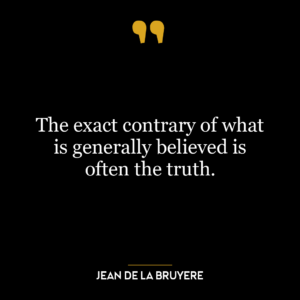This quote suggests that if everyone in the world suddenly began to practice honesty, it would result in many people going hungry. This is a provocative statement that implies a considerable portion of society’s wealth and resources are accumulated through dishonest means. The quote suggests that dishonesty, in various forms, is a survival strategy employed by many.
The quote can be interpreted in two ways. One interpretation is that it refers to the economic system where dishonesty often leads to financial gain. This could be anything from false advertising, insider trading, tax evasion, to bribery and corruption. If everyone were to suddenly become honest, those who relied on dishonest means for their livelihood would lose their source of income.
The second interpretation is that it refers to social dishonesty. This includes white lies, flattery, and other forms of deception used to manipulate others’ perceptions and actions. If everyone were to suddenly become honest, many social structures built on these deceptions would collapse, leaving those who relied on them in a vulnerable position.
In today’s world, this quote is still very relevant. While we often think of honesty as a virtue, our society is structured in ways that often reward dishonesty. For example, in politics, it’s often more beneficial for politicians to make unrealistic promises to win votes than to be honest about what they can achieve.
In terms of personal development, the quote can serve as a reminder to question the ways in which we might be benefiting from dishonesty, whether it’s through our actions or the actions of others. It encourages us to strive for honesty, not just because it’s morally right, but also because it leads to a more equitable society. However, it also warns us of the potential consequences of such a shift, suggesting that transitioning to a more honest society would be a complex process that could result in hardship for many.





